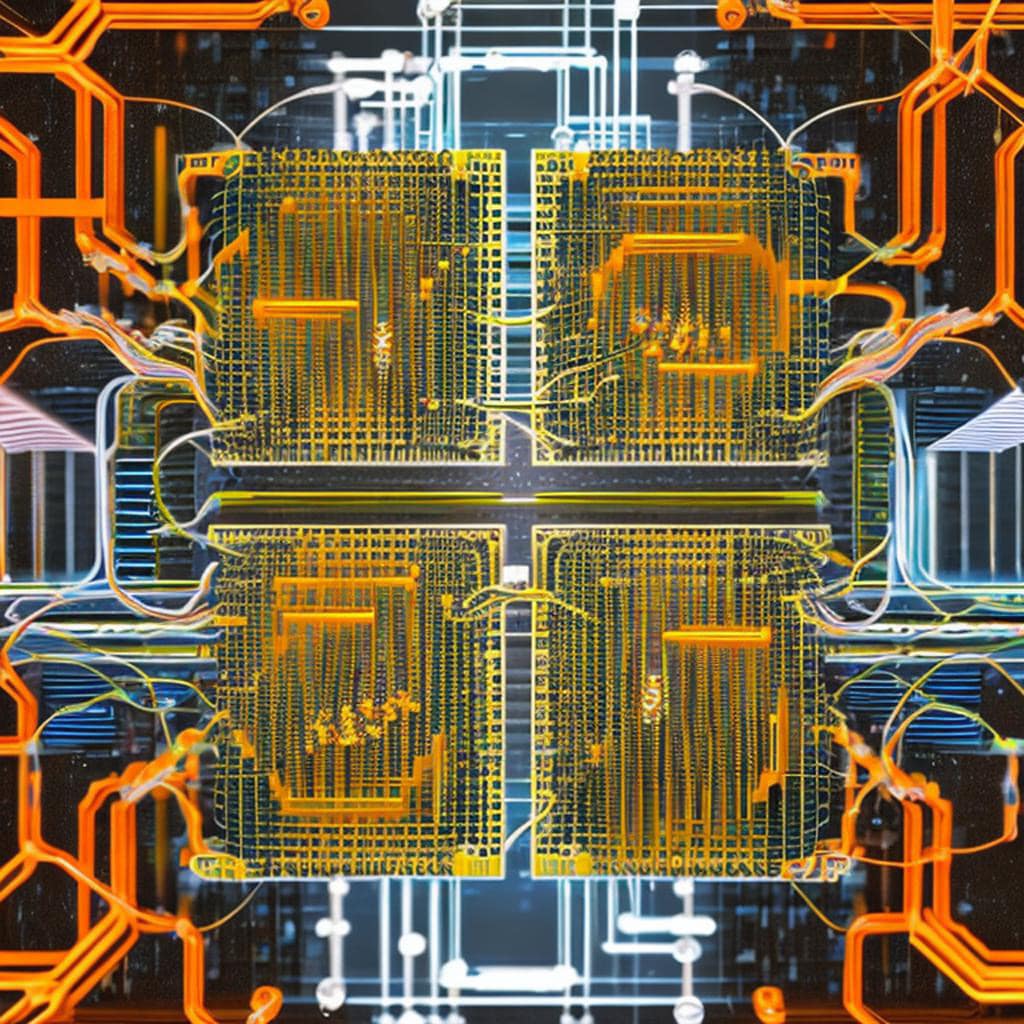A Comprehensive Overview of Current Implementations and Innovations
Quantum computing has emerged as one of the most promising technological advancements in recent years. Its potential to solve complex problems and revolutionize industries has sparked significant research and development efforts by both academic institutions and major technology companies. In this article, we explore the current state of quantum computing, its implementations, key players, and the potential timeline for its widespread adoption.
The Landscape of Quantum Computing
Academic Institutions
Several universities and research institutions worldwide are driving quantum computing research, contributing to the development of quantum hardware, algorithms, and applications. Some notable academic institutions involved in quantum computing research include:
- MIT (Massachusetts Institute of Technology)
- Caltech (California Institute of Technology)
- University of Waterloo’s Institute for Quantum Computing
- University of Oxford’s Quantum Group
- University of Maryland’s Joint Quantum Institute
These institutions collaborate with technology companies and other research organizations to advance the field of quantum computing.
Major Technology Companies
Tech giants are investing heavily in quantum computing research and development. Some of the leading companies in the field include:
- IBM: IBM has been a pioneer in quantum computing, with its IBM Quantum Experience platform providing cloud-based access to quantum processors. IBM is actively working on increasing the number of qubits in its quantum computers while improving error rates and connectivity.
- Google: Google’s quantum computing efforts are focused on developing both hardware and software. In 2019, Google claimed quantum supremacy with its Sycamore quantum processor, which reportedly solved a problem that would have taken a classical computer thousands of years.
- Intel: Intel is exploring multiple quantum computing technologies, including superconducting qubits and silicon-based spin qubits. They aim to develop scalable, fault-tolerant quantum processors for practical applications.
- Microsoft: Microsoft’s quantum computing initiative, Azure Quantum, focuses on developing a topological qubit, which is believed to be more robust and fault-tolerant than other qubit types. Microsoft is also working on quantum-inspired optimization solutions for classical computing problems.
Quantum Computing Implementations
Quantum Annealing
Quantum annealing is a quantum computing technique used to solve optimization problems. D-Wave Systems, a Canadian quantum computing company, has developed quantum annealers that have been used in various applications, such as optimization, machine learning, and material science. D-Wave’s quantum annealers are available for commercial use through cloud-based access.
Gate-Based Quantum Computing
Gate-based quantum computing, also known as circuit-based quantum computing, uses logic gates to manipulate qubits and perform computations. This approach is the most common and versatile form of quantum computing, with companies like IBM, Google, and Intel working on gate-based quantum processors.
Key Milestones and Innovations
Quantum Supremacy
Quantum supremacy is the point at which a quantum computer can solve a problem that no classical computer can solve in a reasonable time. Google claimed quantum supremacy in 2019 with its 53-qubit Sycamore processor. While this milestone demonstrates the potential of quantum computing, it is important to note that practical applications of quantum supremacy are still limited.
Quantum Volume
Quantum volume is a metric that combines various factors, such as qubit count, connectivity, and error rates, to measure the overall performance of a quantum computer. IBM has been focusing on increasing quantum volume, with the company’s quantum computers reaching a quantum volume of 64 in 2020. This progress is indicative of advancements in quantum computing hardware.
The Future of Quantum Computing: Timeline and Expectations
While it is difficult to predict the exact timeline for the widespread adoption of quantum computing, the following milestones can be expected in the coming years:
Near-term (1-5 years)
- NISQ Era: The noisy intermediate-scale quantum (NISQ) era refers to the current stage of quantum computing, where quantum computers have a limited number of qubits and are prone to errors. In the near term, researchers will focus on developing error-mitigation techniques and exploring practical applications for NISQ devices.
- Quantum-inspired algorithms: Even before large-scale quantum computers become a reality, quantum-inspired algorithms can be implemented on classical computers to solve complex optimization problems more efficiently.
- Industry-specific applications: Companies will explore the potential of quantum computing in solving industry-specific problems, such as logistics optimization, drug discovery, and financial risk management.
Mid-term (5-10 years)
- Error correction and fault-tolerance: Developing error-correction techniques and fault-tolerant quantum computers will be a primary focus during this period. Achieving fault tolerance will enable more reliable and practical quantum computing applications.
- Quantum machine learning: As quantum computers become more powerful and stable, they will be increasingly used in machine learning applications, potentially leading to significant advancements in artificial intelligence.
- Widespread commercial adoption: As quantum computing hardware and software mature, more companies will start to adopt quantum computing solutions, either by using cloud-based quantum services or by developing their own quantum hardware.
Long-term (10+ years)
- Large-scale quantum computers: In the long term, we can expect the development of large-scale quantum computers with thousands or even millions of qubits. These quantum computers will be able to solve problems that are currently considered intractable for classical computers.
- Quantum internet: The development of a quantum internet, based on quantum communication and quantum key distribution, will enable secure communication and pave the way for new applications and services.
- Quantum computing as a mainstream technology: As quantum computing becomes more accessible, it will be integrated into various aspects of our daily lives, transforming industries and shaping the future of technology.
The actual implementation of quantum computers is an ongoing process, with academic institutions and technology companies working together to advance the field. While the timeline for widespread adoption is uncertain, the potential of quantum computing to revolutionize industries and solve complex problems is clear. As research continues and innovations emerge, quantum computing will undoubtedly play a significant role in shaping the future of technology.

Text with help of openAI’s ChatGPT Laguage Models & Fleeky – Images with help of Picsart & MIB
Thank you for questions, shares and comments!
Share your thoughts or questions in the comments below!






